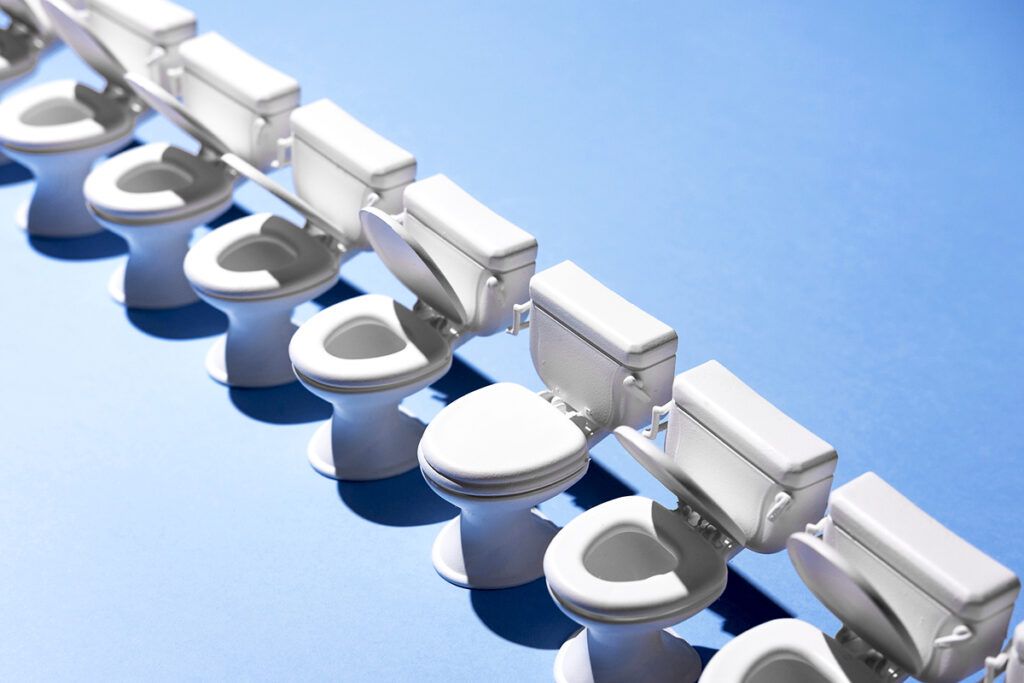Poop can tell you a lot about your health. It can help identify health conditions ranging from nutrient deficiency to internal bleeding. It can also just give reassurance that your body is working well.
Bowel movements are an essential and regular part of your body’s function and your daily life. Knowing your bowel routine is important. It can give you an idea of how your body works and your overall health.
There are several different ways that your poop could look and feel, including softer or harder than usual.
Diarrhea

Diarrhea is soft watery stool that you pass more frequently. The causes of diarrhea vary, from illnesses and food poisoning to anxiety and celiac disease.
It can also represent a type of irritable bowel syndrome (IBS) called IBS with diarrhea (IBS-D).
Besides frequent loose and watery stool, diarrhea can cause other symptoms like:
- abdominal cramps
- nausea
- pain
- loss of control of your bowel movements
The duration of diarrhea varies — it can last for only a couple of days or as long as 14 days. Diarrhea in this time frame is considered acute diarrhea.
It’s important that you seek care if you:
- have diarrhea that worsens or doesn’t improve after 24 hours
- have a fever
- vomit
- have blood in your poop, which makes it look dark or black
Diarrhea can lead to dehydration, which can make you feel dizzy, tired, and weak. So, it’s important to drink plenty of fluids when you have diarrhea.
Constipation
Constipation happens when it’s difficult to pass stool. When you’re constipated, your poop is hard, dry, and lumpy. You have constipation when you have 3 or fewer bowel movements per week.
The causes of constipation include:
- low water intake
- a diet low in fiber
- lack of exercise and physical activity
- some medications, such as antacids, antidepressants, and iron supplements
- stress
To treat constipation, try:
- drinking more fluids
- eating foods that are high in fiber — between 22 grams (g) and 34 g of fiber per day
- taking over-the-counter (OTC) medications like stool softeners
If your constipation is chronic, you can talk with a healthcare professional. They may prescribe medications or other medical procedures.
Color changes
Stool has different colors and shapes. Each color or shape means something different.
The Bristol Stool Chart classifies poop into seven types depending on its shape:
- Type 1: hard lumps in the form of little pebbles
- Type 2: in the shape of a sausage, but in hard lumps
- Type 3: in the shape of a sausage with cracks on the surface
- Type 4: a sausage shape with a smooth surface
- Type 5: soft blobs with defined edges
- Type 6: mushy and fluffy with ragged edges
- Type 7: liquid with no solid pieces
Experts can use the Bristol Stool Chart to help them diagnose conditions like IBS. Typically, type 1 and type 2 indicate constipation, whereas type 6 and type 7 indicate diarrhea. Types 3, 4, and 5 in the middle are typically considered healthy.
The color of poop also indicates different things:
- Brown: Stool that’s brown, no matter its shade, is standard. The brown color is caused by bilirubin, a brownish-yellowish substance that’s produced when red blood cells break down and are passed in the stool.
- Yellow: Yellow poop may mean that your diet has too much fat or that your system is having problems absorbing nutrients.
- Pale or clay-colored: Pale or clay-colored poop may mean you have conditions affecting your liver, gallbladder, or pancreas.
- Green: Having green poop may mean that you’ve had a healthy serving of greens, such as spinach, or that your stool is passing too fast.
- Black: Black stool usually means that there’s bleeding in the upper part of your gastrointestinal tract, such as the stomach and small intestine.
- Red: Red poop may mean that you have bleeding in the lower part of your gastrointestinal tract, such as your rectum and anus. Or it may mean that you have eaten specific foods, such as beets and foods with red coloring.
Healthy stool
Healthy stool is usually brown in color and falls between types 3 and 4 in the Bristol Stool Chart. This means a healthy poop has the shape of a smooth sausage or banana, with a brownish color. Healthy poop may be greenish or reddish, if what you’ve eaten is leafy greens or beets, for example.
Healthy bowel movement also means regularity. That means you have regular bowel movements one to three times per day or at least three times per week, according to experts.
Treatments
Treatment for irregular bowel movements depends on what’s causing them.
Treatments for diarrhea include:
- OTC medications: You might try loperamide (Imodium) and bismuth subsalicylate (Pepto-Bismol).
- Prescription medications: Healthcare professionals may prescribe different medications depending on what’s causing your diarrhea, such as loperamide or cholestyramine for Crohn’s disease or antibiotics for a bacterial infection.
- Lifestyle measures: Drinking plenty of fluids can help keep you hydrated. You may also want to avoid alcohol and greasy foods and stick to bland foods.
Treatments for constipation include:
- OTC medications: You could try stool softeners like docusate (Colace), laxatives like pramipexole (Miralax), and suppositories like bisacodyl (Dulcolax).
- Prescription medications: A doctor might prescribe lubiprostone (Amitiza), linaclotide (Linzess), or plecanatide (Trulance).
- Lifestyle measures: It may help to eat a balanced diet, keep hydrated, and stay physically active.
If you’re experiencing irregular bowel movements that last longer than expected, reach out to a healthcare professional. They can help you determine what’s causing the irregular bowel movements and figure out the best treatment.
If you need help covering the cost of medications, the free Optum Perks Discount Card could help you save up to 80% on prescription drugs. Follow the links on drug names for savings on that medication, or search for a specific drug here.
